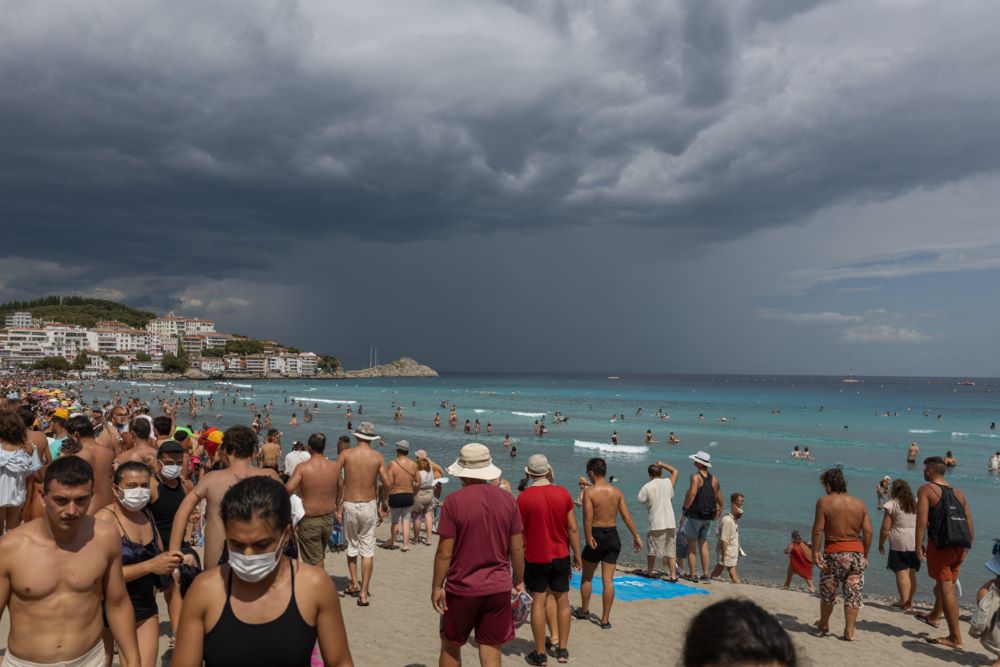Published on
August 30, 2025
The World Health Organization (WHO) has put out a health notice about the ongoing mpox, previously called monkeypox outbreak in Turkey. The illness, which mostly spreads through close physical contact, has now turned up in Turkey. Because of this, health officials are telling visitors to be extra careful.
Travelers are encouraged to be aware of the risks and adhere to preventive measures to safeguard their health while visiting popular Turkish destinations such as Istanbul, Antalya, and Bodrum. As international travel continues to surge, tourists are reminded that diseases like mpox can complicate an otherwise joyful getaway.
Mpox Case Confirmed in Turkey: WHO Issues Alert
On August 23, 2025, the WHO confirmed a case of clade Ib mpox in Turkey. This case was first detected on August 7, 2025, in an individual with a travel history to the United Arab Emirates. The report from WHO, as referenced on the official health organization website, signals that Turkey is now part of the growing list of countries affected by the disease.
Mpox is a highly contagious illness, transmitted primarily through contact with the infected person’s blisters, scabs, or bodily fluids. Early symptoms include fever, headaches, muscle aches, and a rash that may appear within a few days of exposure. The disease can cause severe complications in vulnerable populations, including children, pregnant women, and those with compromised immune systems.
What is Mpox and How Does it Spread?
Previously known as monkeypox, mpox is typically contracted through close skin-to-skin contact with an infected individual. The illness can spread when a person comes into contact with someone’s lesions, bodily fluids, or contaminated items such as clothing or bedding. According to the WHO’s official guidelines, it is essential to avoid direct contact with anyone showing signs of infection, particularly the painful blisters or scabs that characterize the disease.
Travel Health Pro, a UK government initiative, highlights that the majority of people who contract mpox recover within a month, but the disease can lead to severe complications in some cases. There is no specific treatment for mpox, so prevention remains key. For tourists heading to Turkey, practicing good hygiene and avoiding close contact with anyone showing symptoms is crucial.
Turkey Tourism Affected by Global Outbreak
Despite the outbreak, Turkey remains one of the most popular travel destinations for UK tourists, particularly in the summer months. The country boasts rich cultural heritage, stunning coastlines, and vibrant cities like Istanbul, which continues to attract millions of visitors each year.
However, tourists must now take additional precautions before embarking on their Turkish holiday. According to official guidelines from the Turkish Ministry of Health, travelers are advised to stay informed about the situation and follow local health protocols. The Turkish government has pledged to enhance monitoring and reporting on cases while providing necessary health resources for visitors.
Precautionary Measures for Travelers
In light of the mpox outbreak, travelers to Turkey are urged to take proactive steps to protect themselves. The UK’s National Health Service (NHS) recommends the following measures for tourists:
Regular Hand Hygiene: Wash hands frequently with soap and water or use alcohol-based hand sanitizers.Avoid Close Contact: Steer clear of individuals exhibiting symptoms of mpox, especially those with visible rashes or sores.Monitor Health: Be vigilant about any symptoms, especially in the first few weeks after returning from areas affected by the outbreak.Consult a Doctor: If any symptoms of mpox, including fever or rash, appear, immediately consult a healthcare professional and avoid contact with others.
Additionally, travelers are encouraged to stay up-to-date with health advisories from both the WHO and the Turkish Ministry of Health. If any tourist develops symptoms of mpox, the advice is to refrain from any intimate contact and seek medical advice as soon as possible.
Travelers’ Safety Measures Before and After the Trip
For those planning their trips to Turkey, it is important to follow the guidelines not just during the holiday but also before departure. The UK government, via official travel advice, suggests that tourists should consult a healthcare provider about any vaccinations or health precautions needed before traveling to countries with reported cases of infectious diseases.
Upon returning from Turkey, travelers should continue to monitor their health for up to three weeks. If they notice symptoms of mpox, they should avoid public spaces and seek medical attention. The NHS and other official health bodies, including Turkey’s health ministry, recommend travelers stay informed and adhere to health and safety measures to reduce the risk of transmission.
Staying Informed and Safe
The recent mpox outbreak in Turkey might raise a few eyebrows among holiday-makers, but the truth is the virus is still uncommon, and most people recover quickly with the right care. By keeping up with the latest info and sticking to simple safety tips, you can dive into Turkey’s wonders from ancient castles to shimmering coastlines without a hitch.
Pack your good habits and keep them handy: wash your hands, steer clear of anyone you know is sick, and don’t hesitate to ph119 the doctor if you notice any unusual signs. The Turkish healthcare system and the WHO are right on the case, and your little bit of extra caution makes a big combined difference to staying on the safe side.
In the end, Turkey is still on the must-see list of millions every year. Follow the health tips, plan a smart itinerary, and you can have the holiday of a lifetime. The only thing left to do is book that plane ticket!
